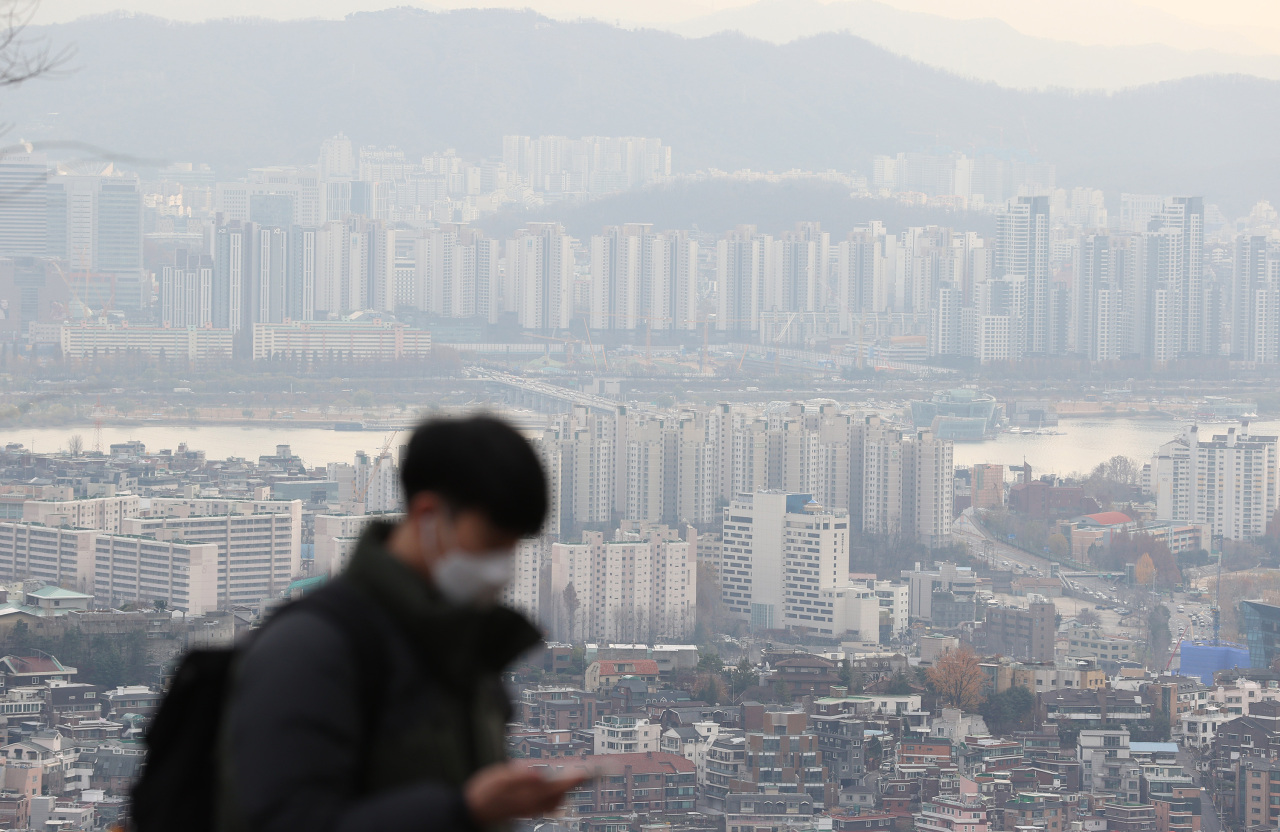 |
An aerial view of apartment complexes in both southern and central Seoul (Yonhap) |
The number of apartments in Seoul purchased by South Koreans below the age of 30 more than doubled on-year in the first 10 months of this year, data from the Korea Appraisal Board showed Sunday.
Though Seoul apartment transactions for people in all age groups increased noticeably in the same period, those in their teens and 20s bought 29,287 new homes in the January-October period, compared with 14,809 homes last year, data showed.
People under 30 bought some 40 percent of all apartments purchased in the nation’s capital.
The rush of young Koreans to buy apartments, rather than opting for popular “jeonse” leases or monthly rent, apparently shows that the shortage of “jeonse” homes coupled with the continued surge in housing prices in Seoul has been fueling a mood of fear that this may be “their last chance” to get on the housing ladder.
Jeonse is a type of housing lease arrangement unique to Korea, whereby tenants occupy a residence for an initial two-year period and pay a lump-sum deposit instead of monthly rent.
But the rush to buy homes despite high prices is fueling borrowing, with the Bank of Korea saying that the increase in home-backed lending has fueled a rise in the value of outstanding bank loans to local households by 10.6 trillion won on-month to 968.4 trillion won ($868.4 billion) as of end-October.
The Moon Jae-in administration has so far announced more than 20 sets of real estate measures -- centered heavily on loan restrictions and taxation on multiple-home owners -- to curb the heated housing market.
Among those, a set of tenant protection laws allowing tenants to unilaterally prolong their jeonse contract periods by another two years and capping deposit hikes has led to increases in jeonse prices. It has discouraged homeowners from putting their properties up for jeonse lease, consequently weighing down the market supply.
According to a local civic group here earlier this month, Seoul’s apartment prices have surged 58 percent since President Moon Jae-in took office in 2017, which is 4.5 times the increase rate of the preceding two administrations. The announcement by the Citizens’ Coalition for Economic Justice came after the incumbent government said Seoul’s apartment prices had risen by just 14 percent in the cited roughly three-year period.
The average apartment price in Seoul jumped from 26.25 million won ($23,640) per 3.3 square meters to 41.56 million won under the current administration, marking a 58 percent increase, the civic group said.
By Jung Min-kyung (
mkjung@heraldcorp.com)








